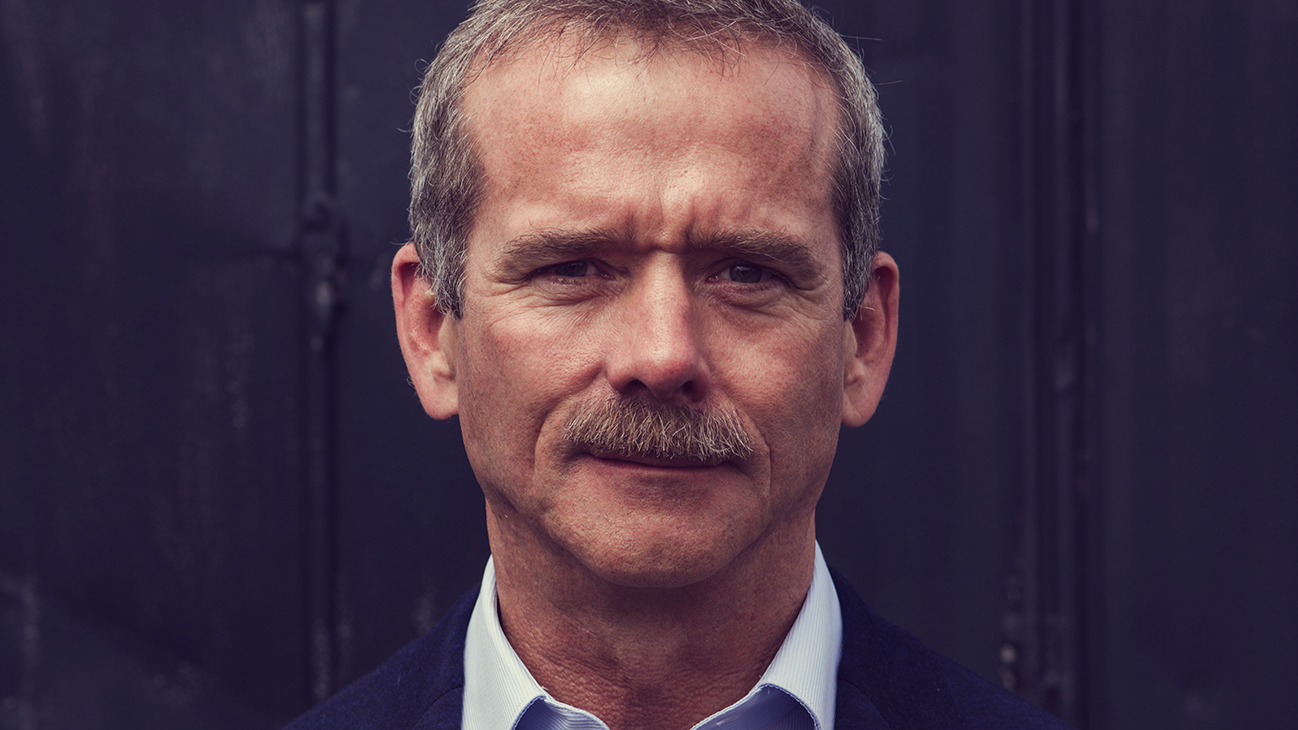Colonel Chris Hadfield became a social media sensation during his five-month stint as the first Canadian commander of the International Space Station. Now retired from the Canadian Space Agency (CSA), he recently published his first children’s book, The Darkest Dark, about his own fear of the dark as a kid. He talked with Canadian Business about managing fear, handling out-of-this-world pressure and finding something else to do when you’ve left your dream job:
You have already walked in space and released a hit album. What made you want to add “children’s author” to your resume?
Over my 21 years with the CSA, I spoke in hundreds of schools. I realized that if you really want to have impact, try giving a useful idea to a young person. I wanted to get people at a young age to recognize that it’s OK to be afraid, but the actual things they’re going to accomplish in their lives are dictated by ways they find to be brave.
There is a great line in the book: “I can only see the stars when it is the darkest dark.” Does that apply to an adult audience, too?
Of course. If you never face up to things you find scary, how do you expand who you are? If you’re completely comfortable with everything you know, then your knowledge is diminishing, because everyone around you is learning new things and the world is changing. A fundamental dissatisfaction with your own level of competence should be the driving force in your life. Competence is the antidote to fear. That’s the whole idea behind how we fly spaceships.
Space travel is obviously the pressure cooker to end all pressure cookers. What techniques have you developed to manage your fears?
No astronaut launches into space with fingers crossed. That’s not how we deal with risk. The key to not being nervous on launch day is having gone through a thousand launch days in your head before that. People talk about visualizing success, but that is easy; astronauts visualize failure.
You were one of four people chosen from a group of 5,300 to go up into space. What did working toward such slim odds teach you?
Don’t make your end goal the only measure of success. I have an extremely low threshold of victory. Why wait until the battle’s end to feel victorious?
Would you still feel that way if you were one of the 5,296 people in your program who never got to go up?
Of course. My crazy goal is to walk on the moon. That’s what has helped to shape my decisions, but I don’t feel like a failure because I haven’t done it. I’m lucky, don’t get me wrong. But flying in space isn’t the only thing I’ve done that I take pride in.
You became a huge social media celebrity while captaining the International Space Station. Any tips on how to connect with an audience?
First, if you want to be successful on social media, immediately start working with someone half your age. It doesn’t matter how old you are. If you’re 22, start working with an 11-year-old because they use and understand social media in a different and more developmental way than you do. Second, people are interested in people. What’s the human experience like? What’s goofy and fun and delightful? A lot of people use social media like a megaphone, but it’s not, it’s a conversation.
You retired from the CSA in your 50s. What is your advice on changing gears, professionally?
In our culture, we have the feeling that if you’re not climbing to the next rung, you’re a failure; we rarely congratulate each other for climbing down. If you say the word “retirement,” it almost means the end of being useful. Why would anybody want that? I’ve retired five times, depending on how you define it. So the real question becomes, what will you do next?

